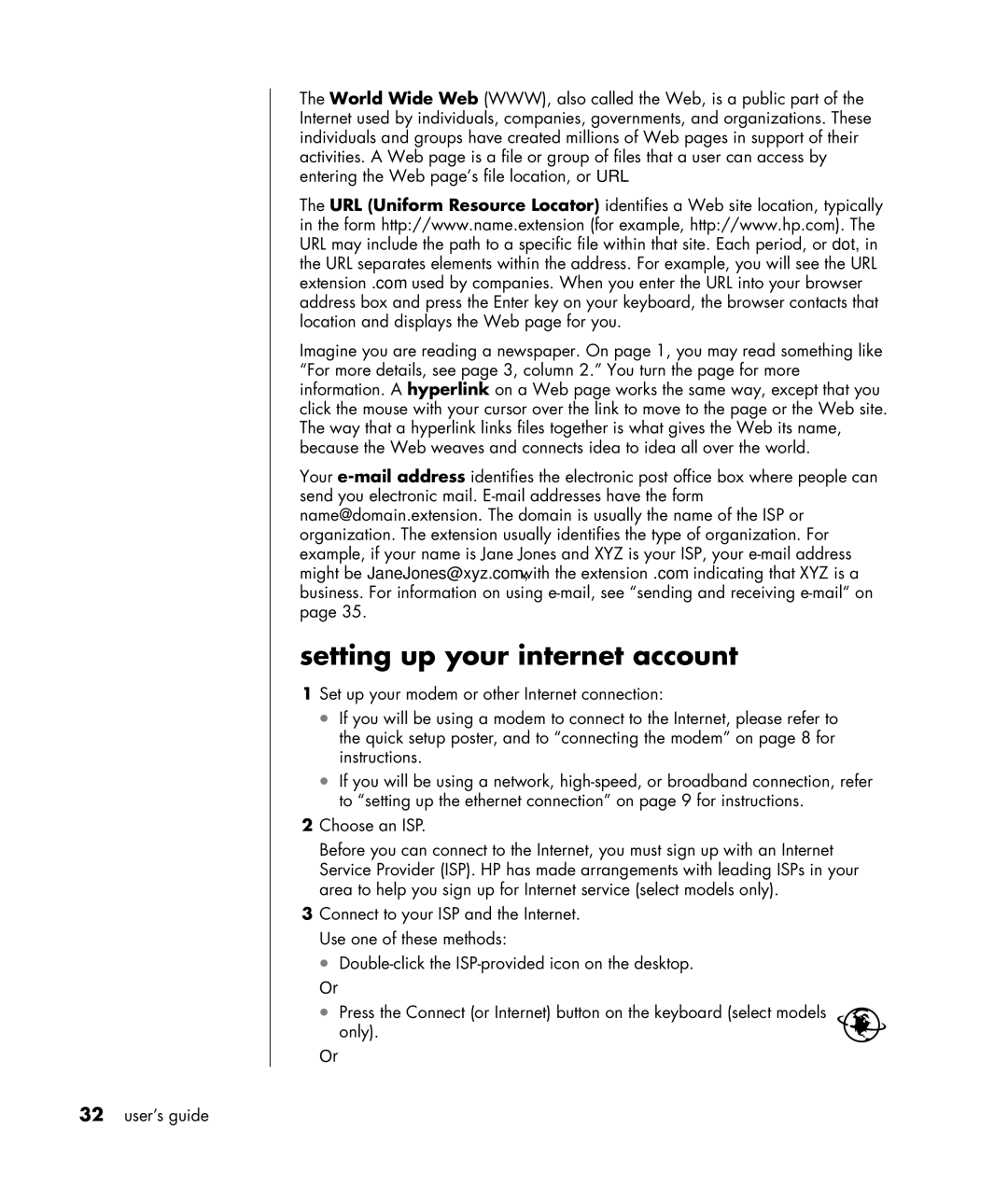
The World Wide Web (WWW), also called the Web, is a public part of the Internet used by individuals, companies, governments, and organizations. These individuals and groups have created millions of Web pages in support of their activities. A Web page is a file or group of files that a user can access by entering the Web page’s file location, or URL.
The URL (Uniform Resource Locator) identifies a Web site location, typically in the form http://www.name.extension (for example, http://www.hp.com). The URL may include the path to a specific file within that site. Each period, or dot, in the URL separates elements within the address. For example, you will see the URL extension .com used by companies. When you enter the URL into your browser address box and press the Enter key on your keyboard, the browser contacts that location and displays the Web page for you.
Imagine you are reading a newspaper. On page 1, you may read something like “For more details, see page 3, column 2.” You turn the page for more information. A hyperlink on a Web page works the same way, except that you click the mouse with your cursor over the link to move to the page or the Web site. The way that a hyperlink links files together is what gives the Web its name, because the Web weaves and connects idea to idea all over the world.
Your
setting up your internet account
1Set up your modem or other Internet connection:
•If you will be using a modem to connect to the Internet, please refer to the quick setup poster, and to “connecting the modem” on page 8 for instructions.
•If you will be using a network,
2Choose an ISP.
Before you can connect to the Internet, you must sign up with an Internet Service Provider (ISP). HP has made arrangements with leading ISPs in your area to help you sign up for Internet service (select models only).
3Connect to your ISP and the Internet. Use one of these methods:
•
Or
•Press the Connect (or Internet) button on the keyboard (select models only).
Or
32user’s guide
